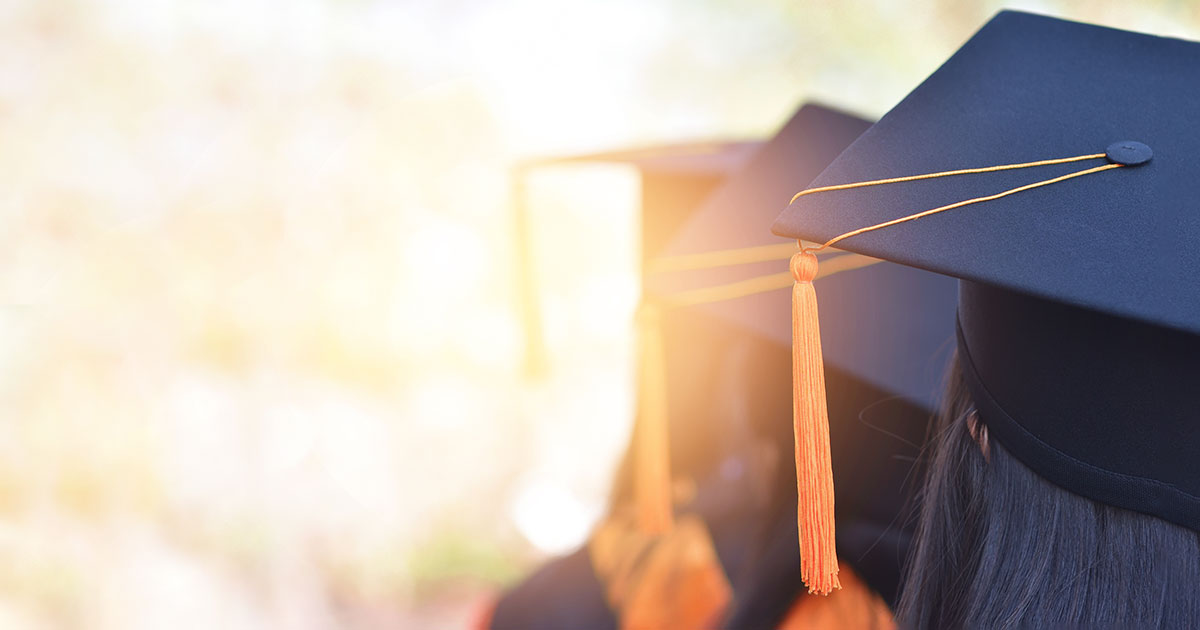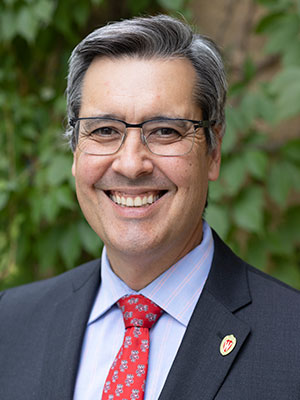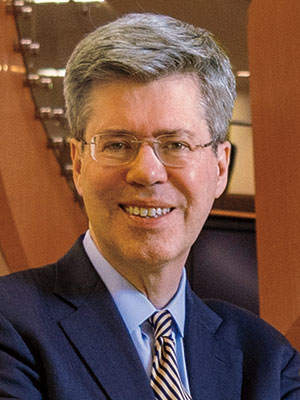
March 15, 2023 – For thirty years, U.S. News and World Report’s (U.S. News’) Best Law Schools rankings have been a newsworthy part of the law school academic year.
Law schools have given U.S News access to information and data in order for the publication to annually calculate its metrics and produce a hierarchy of the top 200 or so law schools. In 2022, the rankings again made the news, but for different reasons.
In November, 2022, Yale Law School announced that it would no longer provide information for the survey rankings.1 Since then, a number of other law schools indicated they would no longer participate.2
That includes U.W. Law School, which will no longer be provide data to U.S. News.3 Marquette Law School will continue to participate, albeit with reservations.
This article provides some background on the U.S. News & World Report’s law school survey rankings and the recent law school exodus, with insights from U.W. Law School Dean Daniel Tokaji, as well as Marquette University Law School Dean Joseph Kearney.
Exiting the Survey
After Yale Law School announced its withdrawal from the U.S. News’ legal education rankings, the action was quickly echoed by Harvard, Stanford and Columbia.4
 Aaron M. Earlywine, a J.D. candidate at U.W. Law School (Class of 2023), is a contributing writer for the State Bar of Wisconsin. He can be reached at
earlywine@wisc.edu or at (347) 515-0933, and is always looking for leads.
Aaron M. Earlywine, a J.D. candidate at U.W. Law School (Class of 2023), is a contributing writer for the State Bar of Wisconsin. He can be reached at
earlywine@wisc.edu or at (347) 515-0933, and is always looking for leads.
Forty-one schools (20% of previous listees) have joined the demonstration and publicly declared their intention to withdraw from participation in the rankings.5
Dissension has been noteworthy, and of the currently withdrawn schools, ten of them were among the rankings’ top 14 law schools.6 The final number will likely grow.
With annual rankings published since 1990, the U.S. News & World Report’s yearly Best Law Schools list established itself as the definitive, or at least the most conspicuous, medium for law school comparisons.
The rankings cut in both directions. High placement provided a sense of prestige, accomplishment, and perhaps justification for the high tuition fees accrued in pursuit of higher rankings.7
A well-entrenched proverb in the legal world maintained that top firms only accepted graduates from top-ranked law schools, and data suggests this is not entirely true.8
To that end, some have argued, the rankings have likely fed into elitism among the legal profession and legal academia, with detrimental effects to access and diversity.
On the other hand, the rankings likely benefit regional and smaller schools by “placing them on the map,” so to speak. The annual national exposure benefits schools outside of the most prestigious circles, providing an opportunity to advertise marked improvement when they successfully jumped up the list.9
Robert Morse, a chief data scientist for U.S. News argued in a recent letter to various deans that the rankings have proved a boon to the applicants themselves, “introduc[ing] prospective students – including those who do not have access to the resources and connections that are associated with the top law schools – to a wide set of law schools.”10
Of Badgers and Barristers

“[Withdrawing from the U.S. News ranking] frees us to focus on our mission of providing a world class legal education at an affordable price,” said U.W. Law School Dean Daniel Tokaji. Instead of chasing rankings, Dean Tokaji recommends going “to a law school that can prepare students for a variety of careers.”
U.W. Law School Dean Daniel Tokaji joined the U.W. law school community in 2020. He is a graduate of the very same Yale Law School that sparked the realignment.
Sitting in his office, Dean Tokaji summarized the recent developments. “Everyone in legal academia recognized that the U.S. News ranking is deeply flawed,” he said.
“There was almost universal agreement, in fact, that the U.S. News [ranking] is problematic.” Yet despite the indications that the rankings had proven “bad for legal education,” Dean Tokaji explained that most schools were not in a position to upset the status quo and risk the hit to their standing without a collective action.
That calculus changed very suddenly in November, with the exodus of Yale and other top-ranked law schools. U.W. may be participating in a wider trend of non-participation; however, Dean Tokaji said U.W. made the decision entirely on its own.
“[Withdrawing] frees us to focus on our mission of providing a world class legal education at an affordable price,” Dean Tokaji said.
For the students also worried about the increasing costs, Dean Tokaji is confident that getting out from under the metrics “allows us to regulate tuition increases,” to a greater degree, with the U.W. Regents recently approving a measure to keep increases below the inflation rate for the next two years.
Dean Tokaji subsequently explained why U.S. News’ metrics would have an effect on tuition and legal education costs in the first place.
He described the heavily weighted “expenditure per student” metric as an especially “pernicious” evaluation that “incentivizes schools to spend student money” in an effort to register a high expenditure and therefore hopefully a better ranking.
Dean Tokaji was especially troubled by the incentive for schools to spend money to target median LSAT and GPA scores, which he felt – particularly due to the effect of using median scores – siphons scholarship money and gate keeps many students from a legal education.
The lead up to joining the exodus wasn’t all arrows and stones between U.W. and U.S. News. Indeed, U.W. attempted to extend an olive branch to the media company. “U.W. had a discussion with U.S. News over our concerns,” Dean Tokaji said.
“We met with them in November to suggest changes to the metrics.” Ultimately, U.S. News was unable or unwilling to make the changes U.W. needed to justify continued participation. “[It’s] not outright hostility,” said Dean Tokaji, reflecting on why U.S. News would not budge in the face of U.W.’s concerns, likely shared by other law schools.
The issue, in his opinion, was primarily down to “a lack of care in construction.” Ultimately, though U.S. News has pledged to make adjustments to its ranking formulations, Dean Tokaji feels they are simply “not a reliable metric for making an informed decision.” He pointed to other reliable data points, such as ABA required disclosures and information the school has voluntarily provided on its website.
Instead of chasing rankings, Dean Tokaji recommends going “to a law school that can prepare students for a variety of careers.”
“I like the distribution of students across different areas,” Dean Tokaji said of U.W. Law School graduates, noting roughly 10.6% are in business, 13.8% are in small firms, and about 43.3% are in the public interest sector (including clerkships) for the 2021 class.
Marquette and the Metrics

“From my perspective, there is no substitute for a prospective student’s active engagement with a law school that he or she is considering,” said Marquette University Law School Dean Joseph Kearney. “Prospective students should ask themselves where they will feel well-supported educationally and personally, through their three years of study and beyond, given what they hope to achieve through their legal education.”
As mentioned, Marquette University Law School chose to continue to provide the data that U.S. News requested for the survey. Dean Kearney, in his 20th year at the helm, reiterated his stance on the issue in responses to questions posed to him by email, as well as statements provided to news outlets seeking his perspective.
“We are deeply sympathetic to the reasons prompting the recent decisions by a number of law schools to proceed differently with U.S. News this year,” Dean Kearney told the
Milwaukee Journal Sentinel.11
In a statement for
WisBarInside Track, Dean Kearney expanded on Marquette Law School’s decision to continue participation.
“In the limited time available to us and in light of the magazine’s intention of providing information about even ‘non-participating’ schools, it has seemed better this year to continue to provide accurate information, even without confidence in the overall merits of the ranking system,” Dean Kearney wrote.
Dean Kearney emphasized the value of his school’s instruction, which is not necessarily calculable in broad and quantifiable metrics.
“I care deeply about our
reputation,” Dean Kearney noted by email, “but, through my long years as dean and despite my sympathy for the recent decisions by a number of schools, I have not regarded advocating against rankings systems as likely to be a valuable use of my time.”
For prospective students trying to determine the potential value of Marquette or other law schools, Dean Kearney understands the interests in metrics.
“[B]ut I do not think that the matter under scrutiny – the law school experience – lends itself to them especially well,” Dean Kearney noted.
“From my perspective, there is no substitute for a prospective student’s active engagement with a law school that he or she is considering.”
To that end, he suggested similar practices advocated by Dean Tokaji for the informed consumer – including reading the law school’s website and magazine, and perhaps most importantly, visiting the school and engaging with current faculty and students.
Dean Kearney also suggested prospective students reach out to practicing lawyers in the area they themselves might wish to practice.
“Throughout this engagement, prospective students should ask themselves where they will feel well-supported educationally and personally, through their three years of study and beyond, given what they hope to achieve through their legal education,” he noted.
He added, “[a]nother, serious problem with metrics is that the answer to this question will and should differ from student to student.”
Asked how schools might best advertise themselves in a post-ranking world, Dean Kearney stated: “I do not anticipate that the world will ever be ‘ranking-less.’
“U.S. News itself has said it will continue to rank law schools, even if they do not submit data to it. Whether it’s U.S. News or the Princeton Review or some other entity, and whether the initiative is borne out of a genuine interest in being helpful or simply financial pursuits, entities will adjudge and categorize others.”
He concluded, “[a]s I have said and continue to maintain, we are confident in the value of a Marquette education.”
Conclusion
The rankings will go on with a mix of submitted data and publicly available data. The immediate impact will likely not be dramatic nor perhaps even calculable.
Prior rankings are easily available online, and the average non-lawyer or prospective law student likely has only a very tangential knowledge of this kerfuffle, if any awareness at all.12 What remains to be seen is what law schools and their administrators will do, and what changes and refocusing will occur.
Endnotes
1 Adam Harris,
Why Yale Law School Left the U.S. News & World Report Rankings, The Atlantic, Dec. 31, 2022.
2 Christy Charnosky,
More Than 20% of US News-Ranked Law Schools Have Withdrawn Participation, Law.com, Jan. 30, 2023 (subscription required).
3 U.W. Law School,
University of Wisconsin Law School Will Not Participate in U.S. News Survey, Jan. 31, 2023.
4 Alexandra Tremayne-Pengelly,
U.S. News Depends on its College Rankings. What Happens When Universities Don’t Want to be Ranked? Observer.com, Feb. 23, 2023.
5 Charnosky,
supra note 2.
6 Id.
7 Anemona Hartocollis and Eliza Fawcett,
As More Top Law Schools Boycott Rankings, Others Say They Can’t Afford to Leave, The New York Times, Nov. 18, 2022 (subscription required).
https://law.tulane.edu/news/tulane-law-statement-us-news-ranking
8 Hartocollis and Fawcett, supra note 7.
9 Id.
10 U.S. News & World Report,
U.S. News Modifies Best Law School Rankings, Jan. 3, 2023.
11 Kelly Meyerhofer,
University of Wisconsin Law School joins exodus of others not participating in U.S. News Ranking, jsonline.com, Jan. 26, 2023.
12 Vivia Chen,
Law School Boycott of U.S. News Rankings is a Big Nothing Burger (Correct), Bloomberglaw.com, Dec. 7, 2022.
